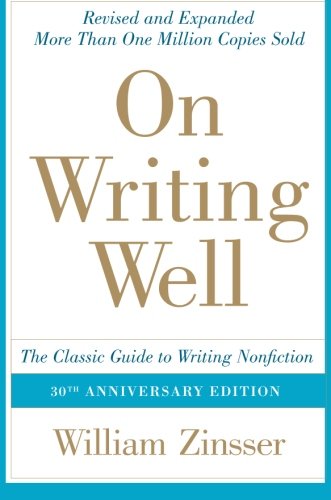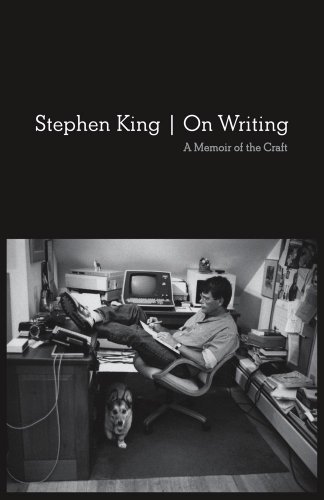Greg mentioned his most recent book, The Story of Reality, on the STR weekly podcast late last year. I found his previous book, Tactics, an indispensable resource for having meaningful conversations about my faith. I ordered Greg’s book as soon as possible expecting it to be little different.
I’d like to share with you a review of its reading. I rarely pay attention to subtitles, but find this one particularly helpful. It reads: How The World Began, How It Ends, And Everything Important That Happens In Between. This is as fine a summary of Greg’s book as I could think of.
Before we get too far down in our journey I want to draw your attention to the key word in that subtitle, the word important. This is a book that covers the most pivotal aspects of the Christian story. It doesn’t cover everything in detail but offers a beautiful telling of its major points. Greg does this by presenting Christianity for what all worldviews really are, a story.
Don’t get hung up on the word story. It is only meant to convey that it is an answering of the great questions each of us asks during our lifetimes. Where do we come from? Who are we? What's wrong with the world? Where are we going?
How we answer these questions forms the narrative telling of the world each of us believes. We all have one, and it determines nearly everything about our lives.
“Christianity is the Story,” Koukl said, “of how the world began, why the world is the way it is, what role we play in the drama, and how all the plotlines of the Story are resolved in the end.” Five words describe The Story: God, man, Jesus, cross, and resurrection. These five words constitute everything of import about the Christian worldview. Greg uses these five words as a plot line for his telling of the Story.
I find this a helpful simplification of the biblical narrative. It’s easy to remember and sets things in their proper context. Instead of slogging uphill you’re able to think through the aspects of the Story as they build on one another.
If you place anything at the center of the Story other than God, for example, you’ll have a hard time understanding the other details of the Story. “God is the first piece of the Christian Story,” Koukl said, “because the Story is all about him. God is the central character. The Story does not start with us because the Story is not about us.” While important and beautiful, you aren’t the center of all things. God is.
Likewise, a failure to put Man in his proper context leads to error. “Even though man is beautiful,” Koukl said, “he is also broken.” Something has gone wrong. The problem isn’t education, economic status or culture. The problem, as it turns out, isn’t external at all, it’s within. “The evil in the world is not out there.” Koukl said, “It is in us...The brokenness in the world starts with the brokenness in us.”
In The Story of Reality, Koukl places complex and intricate topics on a shelf we can all reach. Greg conveys what can be stumbling blocks on the way to truth, with the simplicity and clear-headedness of E.B. White. The puzzle becomes clearer and clearer with each new piece he adds until at long last we see it all come together. The puzzle he helps us put together forms a beautiful picture of the way the world actually is.
10 Great Quotes from The Story of Reality
The correct answer to the question, “What is Christianity? is this: Christianity is a picture of reality. It is an account or a description of the way things actually are. It is not just a view from the inside (a Christian’s personal feelings or religious beliefs or spiritual affections or ethical views or “relationship” with God). It is also a view of the outside. It is a view of the world out there, of how the world really is in itself.
…evil is not the problem for Christianity that people think it is because it is not foreign to the Story. It is central to it. It fits right in. In a certain sense, the entire Story is precisely about how the world went bad and how it gets fixed.
Put simply, the Story starts with a Sovereign who creates a domain he benevolently rules over. There is a King and his “dom,” so to speak. There is a kingdom. This is what the Story is all about. The main theme is not love or redemption or forgiveness or even relationship. Those are all important parts of the Story, to be sure. They serve the theme in important ways, but they are not the main point of the Story. The idea that God owns everything and has proper authority to rule over everything he has made is the main point.
But a story being attractive and a story being true are two entirely different things. Never forget that.
Are humans not obliged to a higher law than the law of nature? Animals do what comes naturally. Humans should not…We are human beings with animal appetites that would tyrannize us if not restrained by higher law. The difference between “just doing what comes naturally” and principled self-restraint is called civilization.
We are not machines that need to be fixed. We are transgressors who need to be forgiven. We have not merely “made mistakes,” like getting our sums wrong when balancing accounts. We have sinned. And with sin comes guilt. And with guilt comes punishment. The sin must be answered for. It must be paid for. It must be paid for in some way. Atoned for, if you will.
The notion of a “vengeful” God strikes us as inconsistent with a God of love. This seems right at first, but the complaint is based on a misunderstanding. God’s love is not a thing in itself, so to speak, but is tied, like all of his attributes, to his goodness, the very goodness we are inclined to question when evil runs rampant. “Why doesn’t God do something?” we wonder. Yet we cry foul when we learn God will do something decisive about evil and we are the evildoers.
The God who began the Story, the God who made everything, is the same God who came down, who became flesh, who entered history as a baby born in Bethlehem. Jesus is a man, but he is also God. He is not a God, but the God. He is the man who God became. He is the one person who is completely human, yet fully divine.
Any adequate solution must solve the problem that needs to be solved, and singular problems need singular solutions. Some antidotes are one-of-a-kind cures for one-of-a-kind ailments. Sometimes only one medicine will do the job, as much as we may like it to be otherwise…This is why Jesus of Nazareth is the only way to God, the only possible source of rescue. He is the only one who solved the problem.
Here is the Story’s solution to the problem of evil: perfect justice for evildoers, perfect mercy for the penitent; evil banished forever, and everlasting good restored.
C.S. Lewis once described Christianity as a big tent. Christians may differ on some of the ancillary aspects of doctrine, but there are many things on which they agree. Koukl's concerns in The Story of Reality are with these points. He translates the Christian Story into terms both believer and nonbeliever alike can understand. He does so in compelling a fashion as you’ll find anywhere.
The trouble is that even many “Christians” are unaware of how the entire Story fits together. They have other puzzle pieces mixed into their box and have left many of the pieces scattered on the ground. Whether that's’ you or you’re curious about how the Story coheres to reality, The Story of Reality will help you put it all together.
More Resources from Greg Koukl








